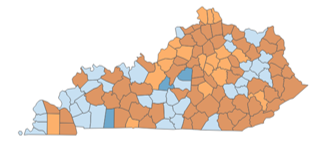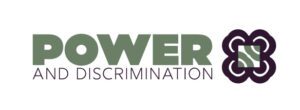It’s About: Bias in Psychology Boards
Confronting the uncomfortable truths lurking beneath the surface of professional oversight
Imagine facing disciplinary action that could tarnish your career, reputation, and future opportunities, all without adequate support or transparency. This isn’t a hypothetical scenario for many early-career psychologists in Kentucky. As powerful boards wield authority over professional standards, a lack of oversight can lead to a culture of fear and punishment rather than growth and development.
As powerful boards wield authority over professional standards, a lack of oversight can lead to a culture of fear and punishment rather than growth and development.
In groundbreaking research for the special issue, two decades of disciplinary actions of the Kentucky Board of Examiners of Psychology (KBEP) reveals a concerning pattern of punitive measures disproportionately impacting vulnerable psychologists, with little consideration for equity or diversity. These findings reveal a troubling reality: psychologists facing accusations often navigate a hostile environment devoid of support or avenues for learning. The repercussions of even minor infractions can reverberate throughout a psychologist’s career, affecting everything from insurance coverage to professional viability.


Distribution of Licensed Psychologists and Drug Overdose Mortality: In 2018, Kentucky faced a stark reality: with just 17.5 licensed psychologists per 100,000 people, well below the national average of 32.0, the state found itself in desperate need of mental health support. As drug overdose mortality rates climbed to 30.9 deaths per 100,000, surpassing the national average of 19.8, the shortage of psychologists in counties, in the south and east, became a poignant reminder of the urgent need for more mental health practitioners.
But it doesn’t end there. This investigation exposes systemic biases embedded within the disciplinary process, particularly concerning issues of race, identity, and representation. By shining a light on these injustices, we challenge the status quo and advocate for a more inclusive and equitable approach to oversight.
The stakes couldn’t be higher. As psychologists grapple with the legacy of racism and discrimination within the profession, it’s imperative that licensing boards reflect the diverse communities they serve. Our recommendations aim to transform the KBEP into an ally for psychologists, fostering a culture of accountability, support, and trust.
Change is necessary to build a brighter future for psychologists in Kentucky—one rooted in fairness, compassion, and justice for all.
Note: This series highlights articles from the recently published special issue of Frontiers in Psychology, “Power, Discrimination, and Privilege in Individuals and Institutions,” edited by Sonya Faber, Monnica T. Williams, Matthew D. Skinta, and Bia Labate.
Faber, Sonya C., Wu, Edward, & Barlett, Amy. (2023). Abuse of power in the disciplinary actions of a state psychology licensing board: inequitable outcomes and early career psychologists. Frontiers in Psychology 14. https://doi.org/10.3389/fpsyg.2023.1184528
Art by Luana Lourenço.
Take a minute to browse our stock:
Did you enjoy reading this article?
Please support Chacruna's work by donating to us. We are an independent organization and we offer free education and advocacy for psychedelic plant medicines. We are a team of dedicated volunteers!
Can you help Chacruna advance cultural understanding around these substances?



















